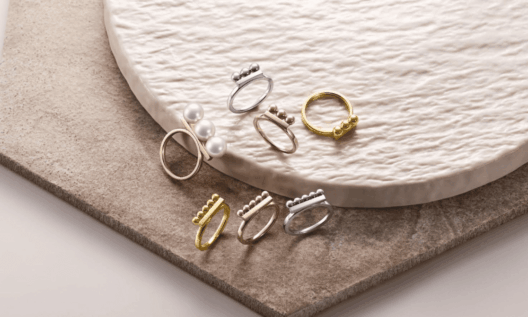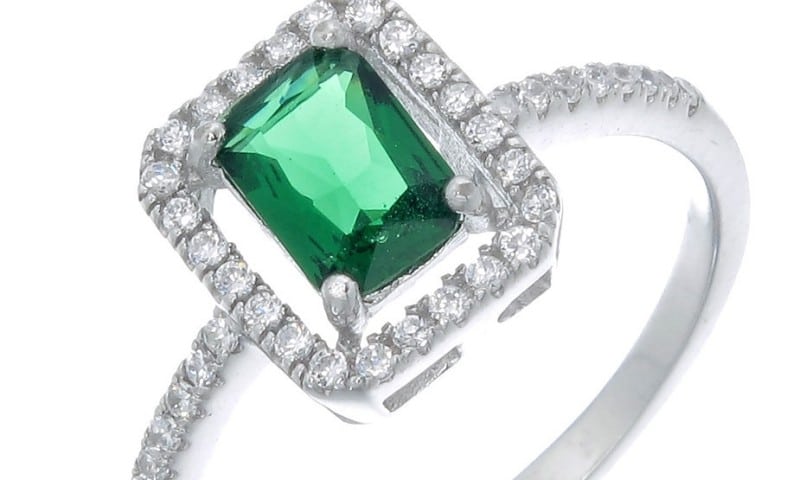Register to get 5 free articles
Reveal the article below by registering for our email newsletter.
Want unlimited access? View Plans
Already have an account? Sign in
Our sales guru LEONARD ZELL holds forth on why a group commission structure will lose you sales on the long term. Reward sales superstars individually, however, and you’ll be quids in.
In the US, salary plus commission is far more prevalent than the UK. For some reason many jewellers in the UK do not offer commission for their sales staff, but when they do, the same question arises as it does in the US; should I reward my sales over-achievers? Put another way, should my best salespeople earn more than the other salespeople?
Most jewellery retailers in the UK that have a commission system avoid this by installing a group commission where all sales are put in a ‘pool’ and the commission is divided equally.
However, with group incentive programmes like this the superstars are not properly rewarded for their higher achievements. Most often that salesperson is the main reason the sales pool is so high in the first place, so with individual commission they know right away that their pay is likely to be more generous.
Wouldn’t it be better to put all of your sales staff on individual incentive commission plus salary? Whenever I ask this question I’m always offered the same reasons, or ‘excuses’, as I call them. One jeweller in Ireland was so adamant against commissions of any kind he did not want it mentioned in his store.
These same seven excuses always pop-up and they are all wrong. They not only affect your bottom line they create a disincentive for your sales superstars to excel.
Overpaid
Jewellersoften offer the excuse that the sales superstar will make more money than the manager and that will cause problems. My answer is: “So what?” The owner should tell the manager to cool his ego and that he should be proud he has such an excellent salesperson on his team.
Where there is no manager, which is usually in the case in small family stores, I will recommend to those owners their aim should always be to have achievers on their sales staff that earn more than they do, and the best way for this to happen is to incentivise their salespeople with individual commission plus salary. The more money they make the more money the owner makes. Either way, their egos should not get in the way of these sales.
Sharing and teamwork
Owners often like everyone to share equally in a group commission because that shows teamwork. That is nonsense. All it does is reward the under achievers at the expense of the over-achievers. Teamwork is best displayed when salespeople who are not busy are always near to the busy salespeople to assist them in getting jewellery from the displays, putting it back after presentation, cleaning customer’s jewellery, taking phone messages and dealing with security issues. That’s teamwork.
Sales quotas
Jewellers also say they like team quotas or budgets because that allows all their salespeople aim for one goal, or in some cases individual goals. This is self-defeating because when the end of the month is approaching salespeople can see little hope of reaching that sales goal. They become disenchanted and their sales decline because there will be no extra reward. Even if they do attain the quota and make the commission that was because of the over-achievers. Again I say, why should these underachievers benefit from the sales of the over-achievers?
During a recent sales training seminar a jeweller said he was going to stop his quota system because he realised his salespeople’s activity always dropped when they could see they could not make that monthly quota. Ironically, when confronted with this situation, store owners often lower the sales quota to a point where it is easily attainable. They don’t realise that this effectively eliminates the quota!
Jealousy and disenchantment
I am often told that individual commissions create an atmosphere of jealousy with high achievers being accused of ‘stealing sales’. If the sales success of one person causes jealousy from another that is the fault of the store owner or manager for not adequately explaining to the sales team the reason for, and benefits of, individual commission. In addition, it is also the job of the store owner to set the rules of behavior at the time of installing the sales commissions so there is no misunderstanding. Let’s face it some people are just jealous of everyone, so if you have a continually disenchanted staff member, they should not be working for you.
Prima donnas
I am told sales superstars become prima donnas and difficult to control. If your #1 salesperson starts to show an outsized ego or becomes difficult to manage, it’s the duty of the owner to sit that person down and talk to them. It’s not uncommon for sales superstars to have large egos – that’s often what makes them excel, but I’d rather have a sales superstar with a healthy ego than a really nice under-achiever any day.
Too aggressive
Another excuse I hear is that high achievers will become too aggressive in closing sales and will jump at the first customer coming into their store, or worse yet, compete with other sales staff by stealing sales. However, once again, it’s up to management to set the rules of behavior while installing the commission program.
Sales are not everything
Store owners often say the reason a particular salesperson, or manager, does not have high sales is that they have other duties. That is nothing more than an excuse for poor performers. I always find that sales superstars and high achievers are so motivated that they do that extra work and still outsell the others. Jewellers should distribute these duties equally among their salespeople which then eliminates this weak excuse.
Sales people who know they are earning individual commission visualise it on these increased sales even before they close them. For example, a salesperson who is on 5 percent commission plus salary has an incentive to try to stop prejudging customers and instead of showing a diamond ring for £2,000 shows one for £5,000 because they know the commission will be £250. Then when they show an add-on sale for a pair of diamond earrings for £4,000, they know that will be another £200.
Another disadvantage of a group incentive system is that under achievers stay around forever, in some cases 10-20 years. They might be nice people and friendly staff members but their job is to sell. Salespeople who do not close sales cost jewellers an untold amount of lost profit.
When I pose this question to jewellers they know it is time to change, especially when I ask what they will do if their new sales superstar gets recruited by their competitor?
Perhaps it is time for you to consider changing too?




















